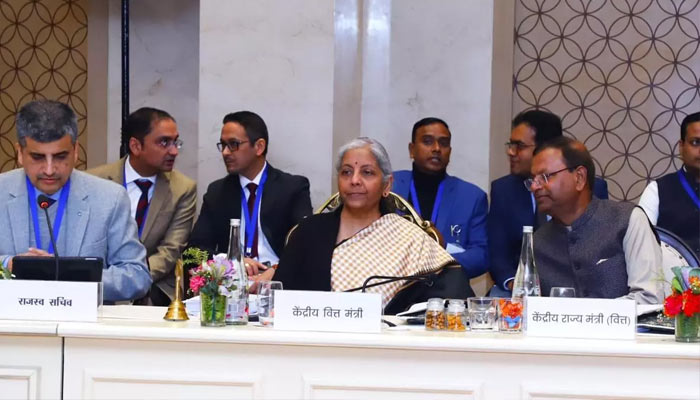The 55th GST Council meeting, chaired by Union Finance Minister Nirmala Sitharaman on Saturday, introduced significant changes to the Goods and Services Tax (GST) framework.
These decisions aim to streamline tax processes, provide relief in certain areas, and align taxation policies with emerging needs.
WHAT’S GETTING CHEAPER?
Several items and services will see a reduction in GST rates, offering financial relief:
Fortified Rice Kernels (FRK): The GST rate on FRK has been reduced to 5% when supplied through the Public Distribution System (PDS). This move is targeted at ensuring affordable nutrition for economically weaker sections of society.
Gene Therapy: In a step toward making advanced medical treatments more accessible, gene therapy has been fully exempted from GST.
Food Preparations for Free Distribution: Inputs supplied for food distribution under government schemes for the economically weaker sections will now attract a concessional 5% GST rate.
Systems for Long Range Surface-to-Air Missile (LRSAM) Assembly: The Council has exempted Integrated Goods and Services Tax (IGST) on systems, sub-systems, and tools used for LRSAM manufacturing, a move likely to benefit the defense sector.
Inspection Equipment for IAEA: Imports of equipment and consumable samples for inspection by the International Atomic Energy Agency (IAEA) will now be exempt from IGST, supporting international regulatory compliance.
Pepper and Raisins (Direct Sales): Pepper and raisins sold directly by agriculturists have been clarified as not liable to GST, ensuring relief for agricultural producers.
WHAT’S GETTING COSTLIER?
On the other hand, some items and services will see higher GST rates, increasing costs for consumers:
Old and Used Vehicles (Including EVs): The GST rate has been increased from 12% to 18% on the sale of old and used vehicles, except for certain petrol and diesel variants. This change will impact the resale market for automobiles.
Ready-to-Eat Popcorn: Pre-packaged and labelled ready-to-eat popcorn will now attract a 12% GST, while caramelised popcorn will be taxed at 18%. Non-pre-packaged and labelled popcorn with the character of “namkeens” will continue to attract 5% GST.
Autoclaved Aerated Concrete (ACC) Blocks: ACC blocks containing more than 50% fly ash will now be taxed at 12%, affecting construction costs.
Corporate Sponsorship Services: These services have been brought under the Forward Charge Mechanism, potentially increasing costs for corporate sponsors.
OTHER POLICY UPDATES
The Council also announced several updates aimed at clarifying existing policies and addressing long-standing ambiguities:
Vouchers: Transactions involving vouchers have been clarified as neither a supply of goods nor services, making them exempt from GST.
Penal Charges: Penalties collected by banks and NBFCs for non-compliance with loan terms will not attract GST, providing relief to borrowers.
Definition of ‘Pre-Packaged and Labelled’: The definition has been updated to align with the Legal Metrology Act. It now covers commodities intended for retail sale, containing not more than 25 kg or 25 liters, and requiring mandatory labeling under the Act.
These decisions are expected to have a varied impact across sectors, from healthcare and agriculture to automobiles and retail.
While some changes aim to reduce costs and boost affordability, others align with the government’s focus on revenue optimization and compliance.

